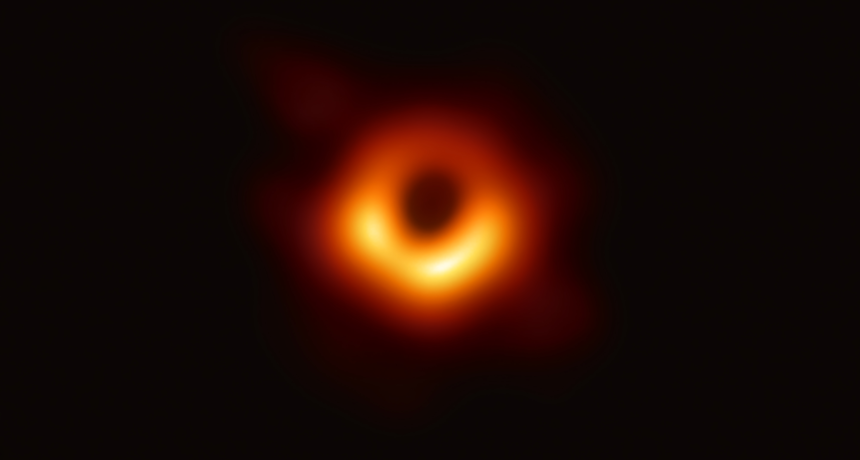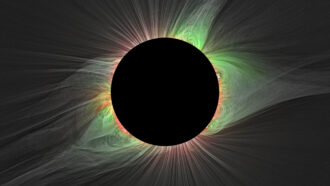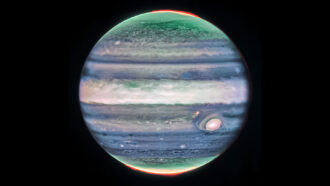accretion disk A ring or flattened plane of gas, plasma or dust (or other materials) that orbits a celestial object, and loses some energy and speed as gravity causes this material to slowly spiral in toward the object it surrounds.
astronomer A scientist who performs research involving celestial objects, space and the physical universe.
behemoth A term for anything that is amazingly big. The term comes from a monstrous animal described in the Bible’s book of Job.
black hole A region of space having a gravitational field so intense that no matter or radiation (including light) can escape.
gravity The force that attracts anything with mass, or bulk, toward any other thing with mass. The more mass that something has, the greater its gravity.
mass A number that shows how much an object resists speeding up and slowing down — basically a measure of how much matter that object is made from.
matter Something that occupies space and has mass. Anything on Earth with matter will have a property described as "weight."
star The basic building block from which galaxies are made. Stars develop when gravity compacts clouds of gas. When they become dense enough to sustain nuclear-fusion reactions, stars will emit light and sometimes other forms of electromagnetic radiation. The sun is our closest star.
stellar An adjective that means of or relating to stars.
telescope Usually a light-collecting instrument that makes distant objects appear nearer through the use of lenses or a combination of curved mirrors and lenses. Some, however, collect radio emissions (energy from a different portion of the electromagnetic spectrum) through a network of antennas.








